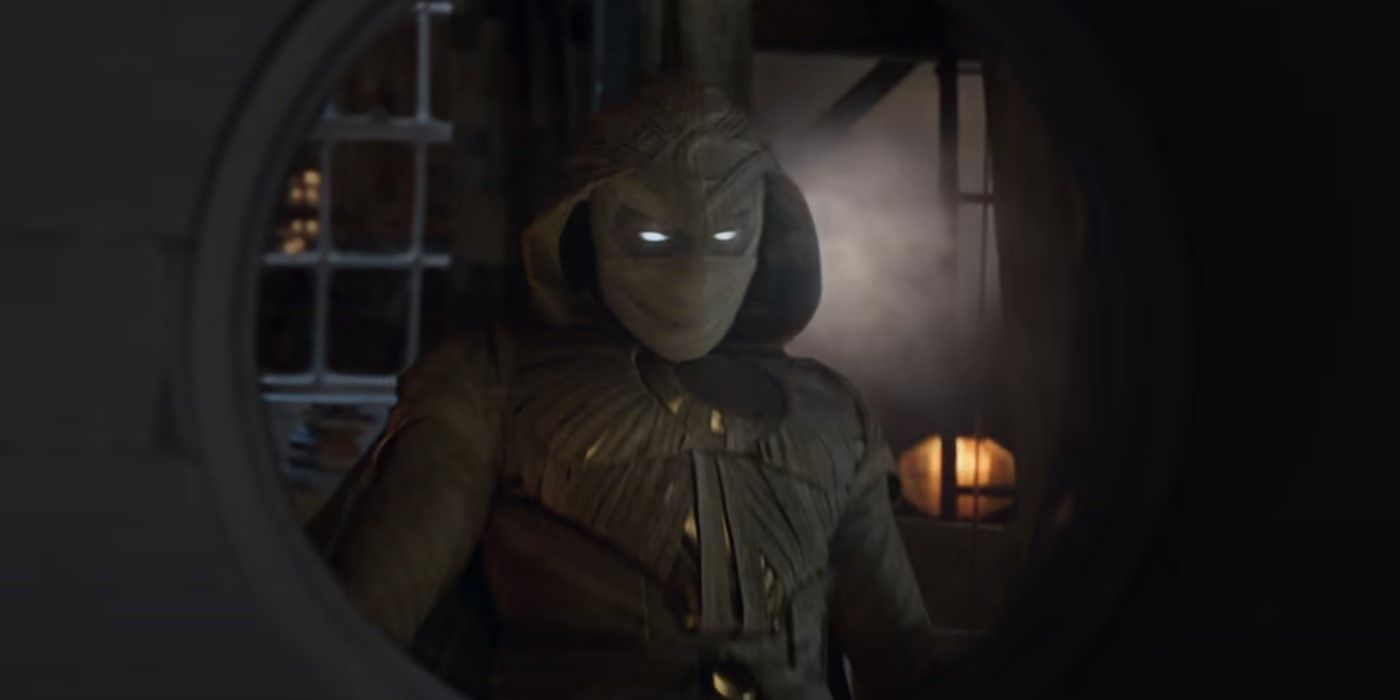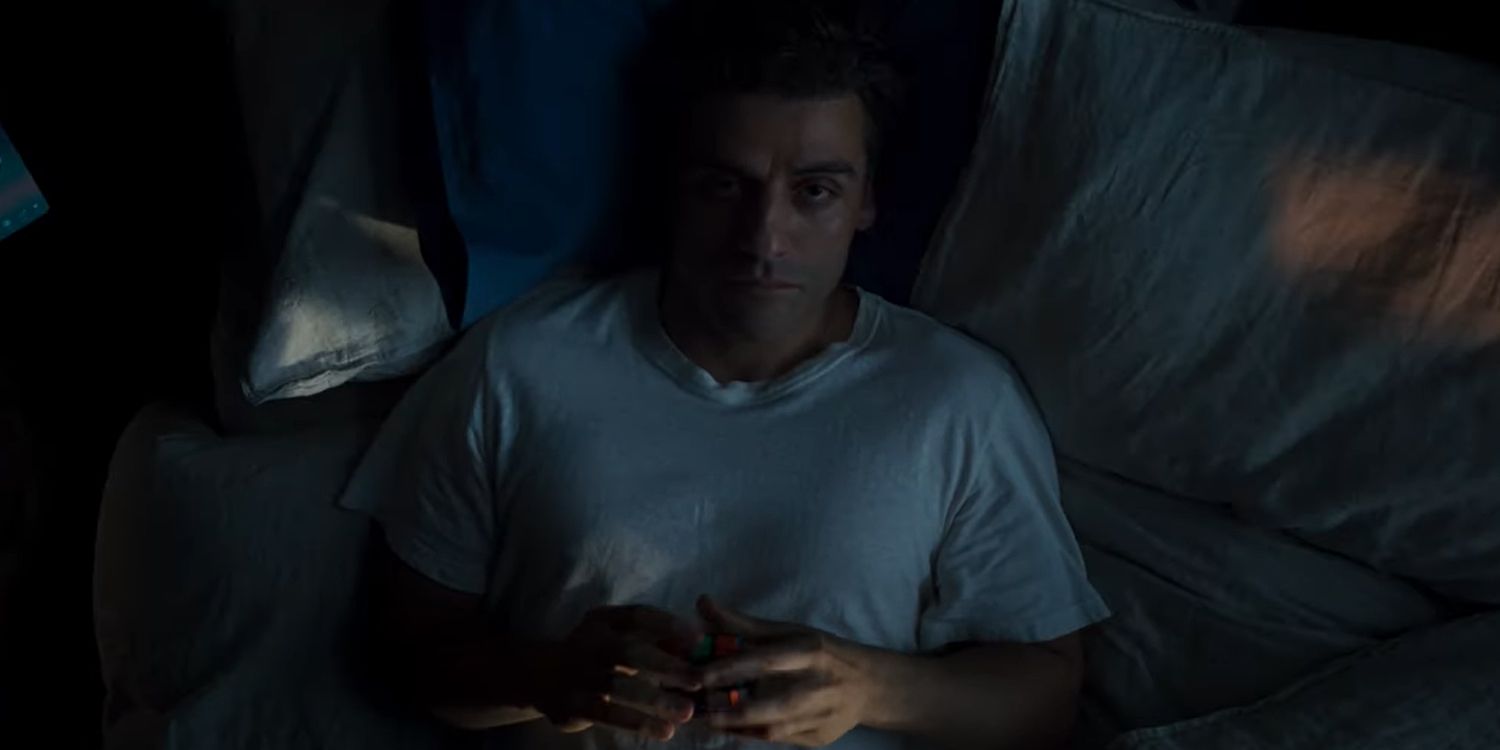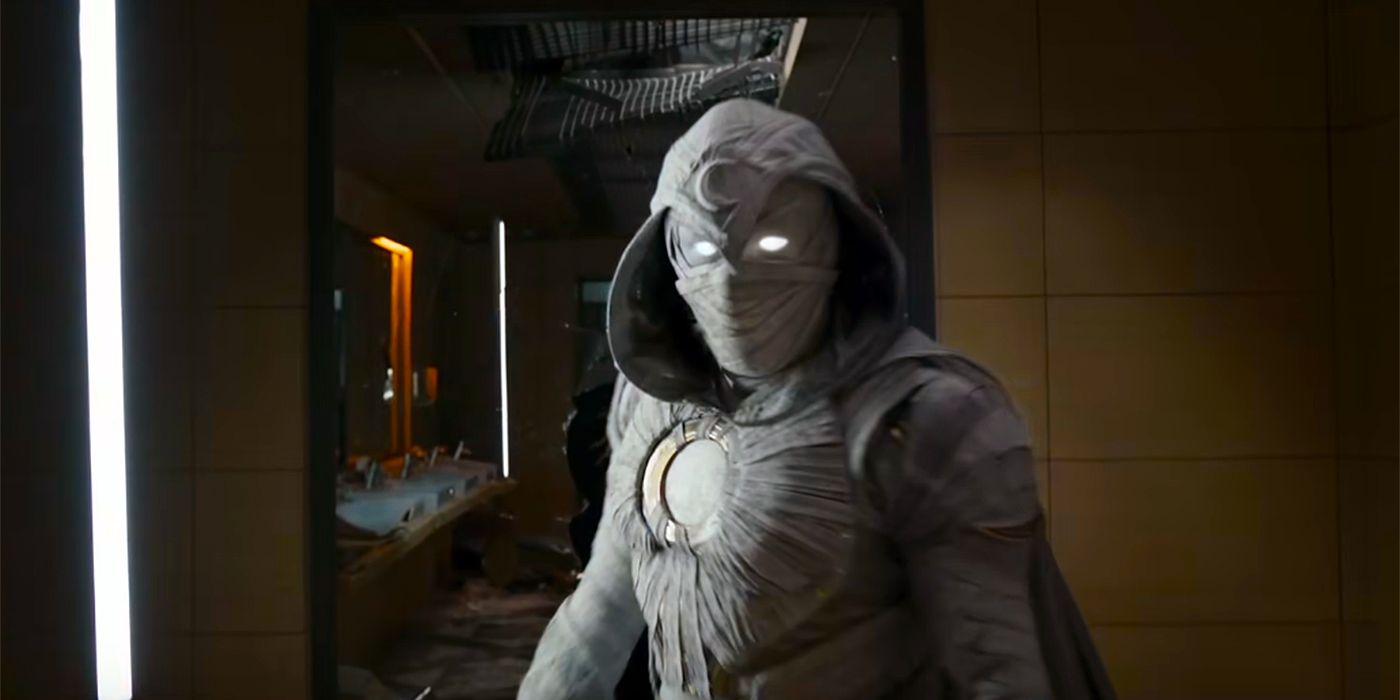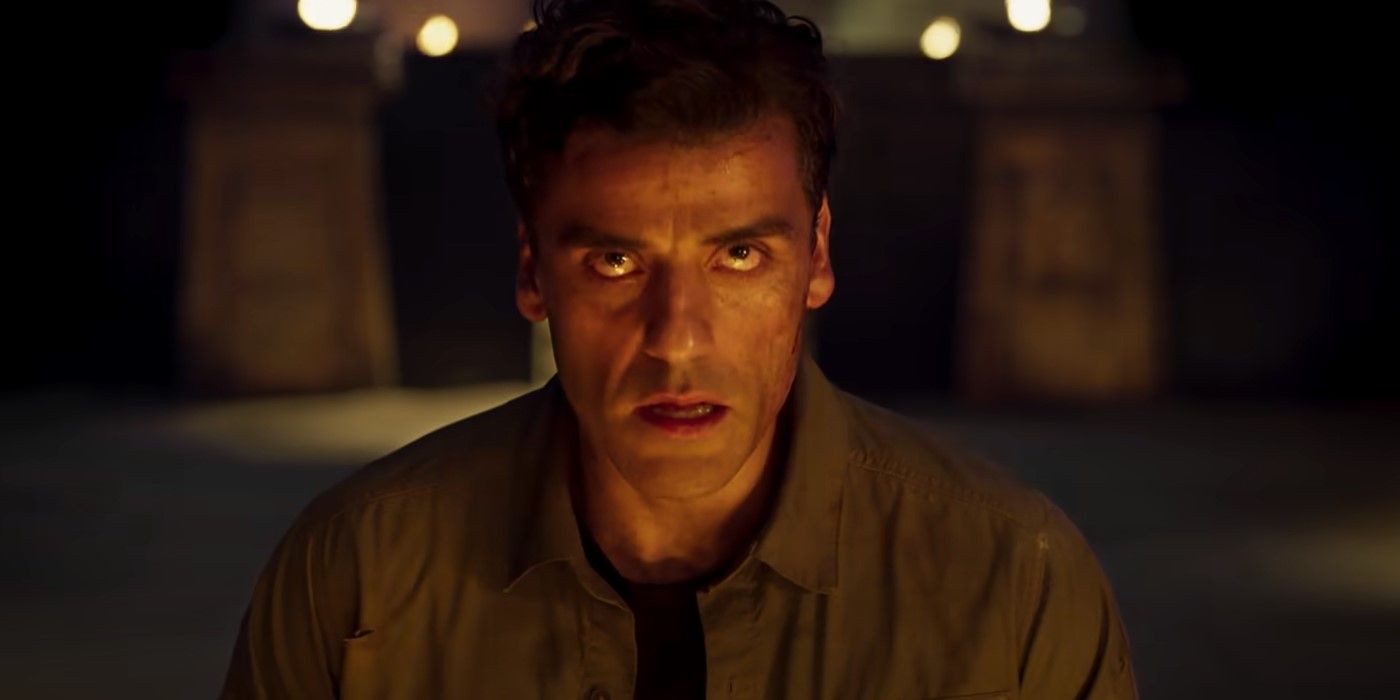Marc Spector/Moon Knight is finally making his Marvel Cinematic Universe (MCU) debut in the franchise’s next Disney+ series Moon Knight, which will hit the streaming service on March 30. One aspect of Marc’s identity is his Dissociative Identity Disorder (DID) diagnosis, which the show will explore. DID – formerly known as multiple personality disorder – manifests after extreme trauma events as distinctive identities that help the system host process their trauma. The distinctive identities are known as alters, and the group of alters is called a system in the DID community. The original Moon Knight comics honed in on this aspect of the disorder as a storytelling device to help Marc solve crimes as Moon Knight.
Audiences have already met one of Marc’s alters, Steven Grant, in the first full-length trailer for the series. His other alter Jake Lockley, depicted as a street-smart cab driver in the comics, may make an appearance in the show as well. However, both the MCU and Hollywood’s track record with depicting mental illness means that Moon Knight might sensationalize Marc’s DID instead of representing it in an authentic, affirming way. The MCU is a huge franchise with global visibility, so the way they choose to portray Marc and his system matters for the real-life folks who live with DID.
DID in Hollywood
Because DID is unique in the way it manifests as distinctive identities, it has long been used as a narrative prosthesis in Hollywood. But Hollywood’s depiction of people with DID as violent, dangerous, and murderous is a harmful, disingenuous representation of the real-life people who live with the disorder. DID is almost always depicted in a sensationalized way -- especially in the horror genre, where the host’s shifts between alters is used as a plot device or a twist to reveal the character’s murderous intents or motivations. Robert Louis Stevenson's short story Dr. Jekyll and Mr. Hyde is credited with starting the connection between DID and horror because of how the Mr. Hyde personality manifests as a murderous villain -- the complete opposite of the mild-mannered Dr. Jekyll. The Alfred Hitchcock film Psycho credits Norman Bates’ murderous behavior as a result of his DID, maligning folks who live with DID as “psychos.”
The more recent M. Night Shyamalan film Split is notorious for how it depicts DID. In a similar vein to Psycho, main character Kevin’s system of twenty-three alters harbors several who are violent and sociopathic; the film’s plot centers around one of his alters kidnapping two young women. The film was decried by folks in the DID community and in the mental health profession for its maligning of systems as violent victimizers rather than people who have undergone serious trauma. Hollywood has consistently villainized individuals with DID systems and dramatized their alter switches for entertainment value, sensationalizing the disorder and marginalizing the folks who live with it.
The MCU’s own depiction of mental illness across its 14-year history is mixed. There are the uplifting, affirming depictions that reflect the characters’ responses to their unique situation as heroes in a world that has no apparatus to support them. Tony Stark’s struggle living with PTSD and panic attacks post-Battle of New York in Iron Man 3 shows an authentic response to a trauma event -- something unheard of in the MCU until that point. Wanda Maximoff’s grief and depression was the focal point of WandaVision, and the show soared when it showed Wanda’s down-to-earth moments of coping with the loss of Vision. But in the same year, Bucky Barnes’ therapist in Falcon and the Winter Soldier treated him insensitively during their sessions together. Endgame trivialized Thor’s depression after he failed to kill Thanos in Infinity War, subjecting him to fat jokes and mistreatment from the other Avengers. Considering how Hollywood depicts DID and how the MCU flip-flops on how they depict mental illness, Moon Knight runs the risk of depicting DID in the same sensationalized way.
What Moon Knight Can Do Right
Marvel Studios president Kevin Feige has made it clear from Moon Knight’s entrance into the MCU that Marc has DID. When he introduced the show on Disney Investor Day back in 2020, he made reference to Marc’s DID – showing an awareness of the disorder that Marc lives with. The official synopsis for the show says that alter Steven and Marc “must navigate their complex identities,” indicating that like WandaVision before it, Moon Knight will be dealing directly with Marc’s mental health. The trailer makes it clear that Steven is struggling with insomnia and discerning reality, and will deal with amnesiac events when he learns he is part of Marc's system.
The show appears to have a solid foundation for depicting Marc’s DID. It refers to Marc and Steven as distinct identities living in the same system, showing at least some recognition that the individual living with DID perceives their alters as separate. Where the show can shine is by referring to the alters as such instead of identities, or more erroneously, personalities and by calling the group of alters a system. As of publication, Feige, Isaac, and writer Jeremy Slater have not done any interviews stating that they consulted with mental health professionals or systems for how to best represent DID in the show, so it’s unclear if they will be referring to Steven as an alter and part of a system.
RELATED: Moon Knight's Trailer May Tease a Threat Greater Than Ethan Hawke's Cult Leader
Marc’s DID does not have to be the central focus of Moon Knight for the series to be engaging. It can avoid a problematic depiction of DID by taking the focus away from constant, dramatic alter switching and extreme memory loss and towards Marc integrating his system into his everyday life. Moon Knight Vol. 9 has found the ideal balance of Marc seeking treatment for his DID with a special therapist and also acting as the Fist of Khonshu. Instead of depicting him as tortured and unfunctional because of his DID -- which the trailer appears to do with its shots of Marc and Steven looking confused as he switches -- making Marc and his system functional as a narrative endgame will prevent the series from sensationalizing a very real disorder that people live with.
If the rumors that Moon Knight will receive multiple seasons are true, there is definite space in Marc’s character arc to show him overcoming the initial struggle of his diagnosis and going about his day-to-day with his system. The show’s dark and supernatural themes, alluded to in the trailer, do not disqualify it from being an affirming, respectful depiction of life with DID. The recent comic runs Moon Knight Vol. 7 and 8 have proven it's possible to have both. There is a difference in depicting a character living with mental illness and using mental illness in a character to tell the story – and Moon Knight has the potential to move the dial on how DID is represented in Hollywood.




